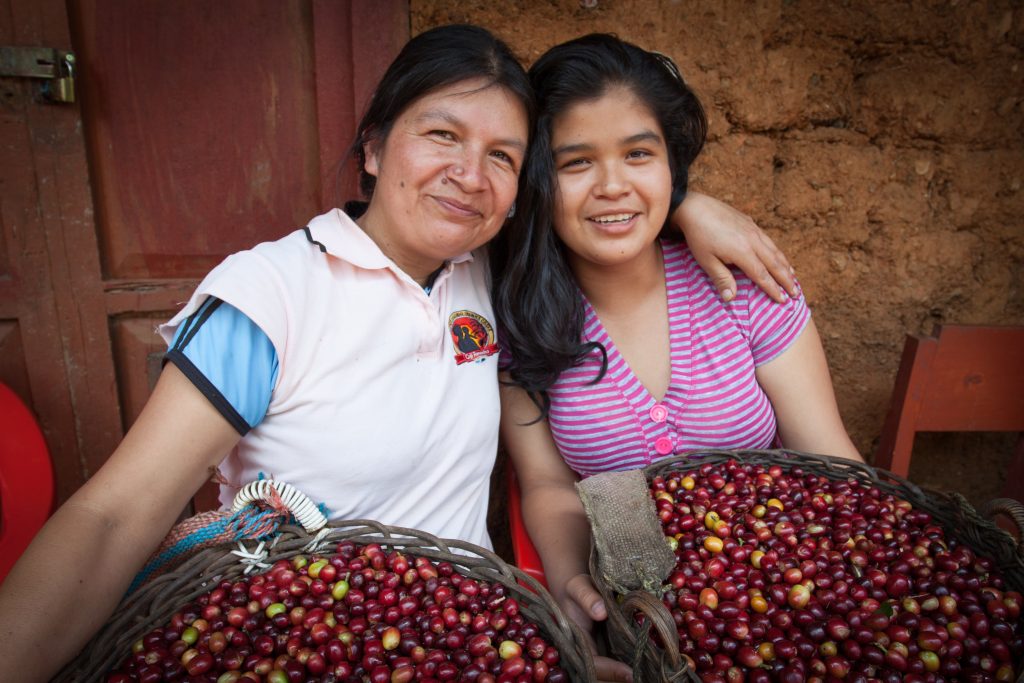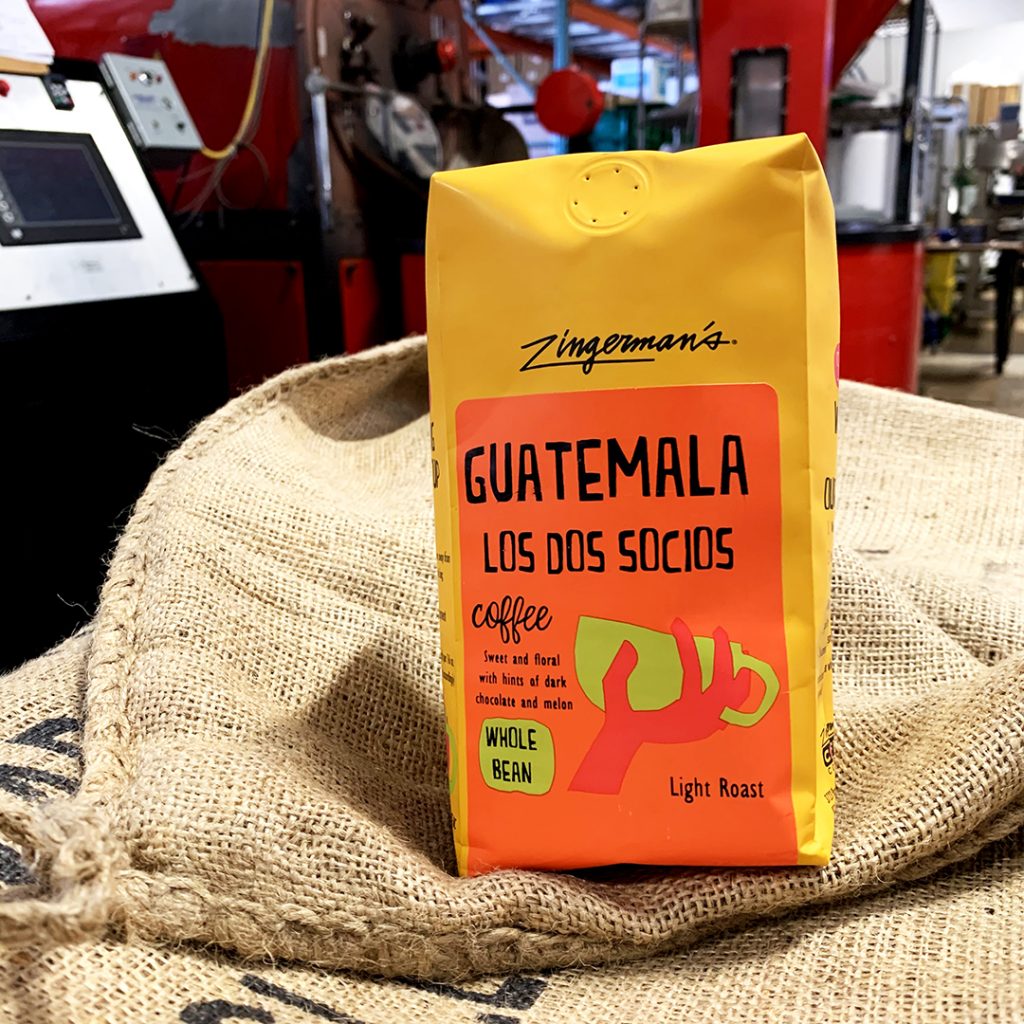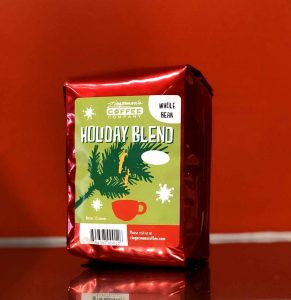Erlita’s Lot Coffee from Peru
Grown, harvested, sold, and shipped by women
Ari Weinzweig, CEO & Co-Founder of Zingerman’s
Back in 2004, Isabel Uriarte Latorre co-founded Café Femenino, an organization dedicated to empowering women on the front lines of the coffee industry. From the get-go, she built the business to support women in the work world financially, spiritually and socially. The project allows women to produce high-quality coffee and get paid commensurately—they’re not stuck bargaining with aggressive buying agents out on the marketplace. And, as per what I wrote above, to boost the energy of women who had generally been left out, ignored, or even abused, and help them reclaim the full lives to which they have always been entitled. The folks at Café Femenino share that:
“Women in remote and rural coffee communities face a host of challenges that keep them trapped in poverty. Many of these isolated women live in male-dominated societies and have very little financial control or decision-making power. 464 women farmers in northern Peru decided to change this dynamic by separating their coffee production from the men’s. In that moment, for the first time, this group of women created their own product and income… to support social justice and empowerment for women coffee producers worldwide.”

Coffee production came to Peru in the 1700s. After two centuries, the heirloom typica variety still comprises 60 percent of the country’s exports. There are more than 110,000 coffee growers in Peru, most of whom are indigenous to these landscapes and speak Spanish only as a second language. The average land-holding farmer lives on less than three hectares, hours from the comforts of electricity and running water. Erlita Baca Arce’s farm is near the Peruvian village of Nueva York, a small coffee community in the Amazonas region of northern Peru, east of the Andes Mountains, at 5700 to 6500 feet above sea level—an ideal altitude for high-quality Arabica coffee trees. Erlita has been part of the project since its inception and now serves as the treasurer of the coop, and as she explains:
“Café Femenino has given me many opportunities to improve the quality of my coffee and the quality of life for my family. I invest the premium I earn in improving our community, providing education for our daughters, and improving the food that we feed our families. Café Femenino has been wonderful in improving the self-esteem and empowerment of the women in our community.“
Erlita is not alone in her positive comments. Every article I’ve read about Café Femenino details outstanding results: increased local recognition of the work the women are doing, both in the fields and on the home front; a reduction in abuse (physical, emotional, and sexual); an increase in income; more men are participating in child care and housework; and upswing in school attendance among local girls. In addition, because the female coffee producers in the area now have the potential to get a better price for their coffee, many men are signing the deeds of their land over to their wives so their coffee will be eligible for Café Femenino designation.
While dignity, meaningful work, and good coffee are always in season, National Women’s History Month is a particularly good time to take notice of Erlita’s Lot. The history of the event goes back over a century to the years before WWI and the Spanish flu, to the end of February 1909, when “National Women’s Day” was sponsored by the Socialist Party of America. By March of 1911, International Women’s Day (IWD) was marked by over a million people demanding the right to vote for women, workplace safety, equitable pay, etc. Six years later, on March 8, 1917 in the Russian capital of Petrograd, women workers took to the streets for National Women’s Day, demonstrating en masse in an event that unexpectedly turned into the Russian Revolution. The Tsar abdicated a week later, on March 15. Leon Trotsky wrote, “March 8th was International Women’s Day, and meetings and actions were foreseen. But we did not imagine that this ‘Women’s Day’ would inaugurate the revolution.”
The Erlita’s Lot coffee is as great as the story behind it. Smooth, a bit of dark chocolate, maybe even like a piece of toasted Country Miche bread from the Bakehouse. The coffee has a surprisingly clean finish and modestly full mouthfeel. All the brew methods have been good, but I’m stuck on the smoothest flavor of the bunch, which I found to be Chemex (the syphon pot and the Clever brewing weren’t far behind). Sip some of this great new coffee and nibble on a Bakehouse oatmeal raisin cookie. Erlita’s Lot is available at the Coffee Company, Next Door at the Deli, and at the Roadhouse. Sit, and appreciate the morning as we move into spring. And because I seem to have a proclivity of late for Peruvian poets, here’s a short one that seems right for the moment from surrealist writer Blanca Varela:
it’s seven in the morning
it’s the perfect time to start
dreaming
the coffee becomes eternal
and the sun eternal
if you don’t move
Excerpt from Ari’s weekly Top 5 E-Newsletter. To stay in-the-know about things that Ari is excited about in the Zingerman’s family, sign up here!
Zingerman’s Coffee Company – February Dine-In Update
To our wonderful guests,
February 1 is here, and we want to share with you our updated guidelines here at Zingerman’s Coffee Company, given the recent direction from the State of Michigan to allow restaurants to reopen dine-in service:
- Indoor seating will be available for to enjoy – for a maximum of 30 minutes – from 7am-4pm daily.
- As required by the Michigan Department of Health and Human Services (MDHHS), tables will be 6 feet apart, no more than 6 guests are allowed at a table, and we will have limited seating capacity.
- You are required to wear a mask unless actively eating or drinking, and we are required to collect your contact information for contact tracing.
- Due to limited seating, it is available on a first come, first served basis.
MDHHS very clearly reminds us that indoor dining remains high risk, and asks us all to consider reducing our risk by choosing takeout, delivery, or outdoor dining.
We hope you will continue to:
- Order online for contact-free, in-store pick-up
- Swing by our cafe and consider taking your coffee to go
- Order for home delivery via GrubHub
- Stock up and stay safe with our 5# bags of coffee, delivered nationwide!
We are beyond grateful for your support and patronage in these difficult times. We’ll keep you posted on any changes as soon as we can!
Warmly,
Zingerman’s Coffee Company team
New Single-Origin Coffee from Guatemala
A beautiful brew from the coffee-growing “star” of Central America
Ari Weinzweig, CEO & Co-Founder of Zingerman’s
Guatemala has an ancient and highly esteemed history that goes back to the advanced Mayan civilization dating to about 2000 BC. Coffee is a relatively recent arrival—serious commercial planting started in the middle of the 19th century, primarily with German immigrant planters, about a decade after the demise of a nation-state that almost no one around these parts will have heard of. The Federal Republic of Central America was founded in 1823—less that 50 years after the Declaration of Independence of the United States. The Federal Republic of Central America included what’s now Nicaragua, Costa Rica, El Salvador, Honduras, Chiapas and Guatemala. It started with much the same spirit as the U.S., as a democratic nation state, but came apart in the course of its own Civil War in 1938.
A century and a half down the road of history, Guatemala consistently produces some of the most flavorful coffee one can find anywhere. And some of the best of the best comes from an estate in the northern part of the country called “Los Dos Socios.” Here’s what the crew at the Coffee Company said:
The name was selected by Don Concepcion Villatoro Matias to refer to “the two associates” involved in producing coffee at his farm: himself and God. His approach has been a simple one since purchasing the farm in 1990: plant bourbon and caturra varietals under shade trees, tend them well, and keep parcels separated to maintain unique lots. His farm in Huehuetenango is up high with a view of the mountains, making for a lovely place to live and work. Huehuetenango is one of Guatemala’s prized coffee-growing regions, and with coffees as vibrant and exciting as this one, it’s easy to see why.

The flavor profile we’re getting out of Los Dos Socios is a thing of beauty: juicy blackberry notes, some really rich caramel smoothness, and a zing of bright papaya all working together. It reminds us of the coffee cherries we snacked on while visiting farms in Guatemala last year—the juicy, sweet, and tangy combination of flavors is a great way to describe the taste of the fruit surrounding a coffee bean. As long days of farm visits wore on, it was neat to see farmers picking a few cherries and snacking – even before it’s processed, roasted, and brewed, coffee can provide small moments to enjoy. We hope you appreciate all the hard work that went into these beans, and that you enjoy your brews of Los Dos Socios all the more for it!
I’ve been loving the coffee for the last few weeks. It’s got… a wonderful combination of depth and delicacy, substance and subtlety, softness and strength. It is, as per what I wrote above about vision, a positive and sustainable testament to the work of Don Concepcion and his team. There is something special, hard to pin down, that makes it so eminently calming, comforting and enjoyable. It has what Christopher Alexander wrote in The Timeless Way of Building: “In our lives, this quality without a name is the most precious thing we ever have.”
Come by the Coffee Company, the Deli, or Roadhouse and grab a bag of beans or a cup to go. Or let us ship—you won’t see it on the zingermans.com site, but email [email protected] and let us know what you’d like. Better still, sign up for a Mail Order Coffee Subscription!
P.S. If you’re at the Roadshow getting coffee, say hi to Celia who is from Guatemala, and proudly thanked me for carrying “her coffee.” I thank her for her great work and for bringing our vision and values alive every day in such beautiful ways!
Excerpt from Ari’s weekly Top 5 E-Newsletter. To stay in-the-know about things that Ari is excited about in the Zingerman’s family, sign up here!
Holiday Blend from the Coffee Company
A beautiful brew that can turn any day into a holiday!
Ari Weinzweig, CEO & Co-Founder of Zingerman’s

If you’re thinking about what to drink when you dive into a nice piece of pecan pie or with a toasted slice of Cranberry Pecan bread for breakfast, this seasonal brew from the Coffee Company could be just the trick.
We’ve been designing and offering an annual Holiday Blend for over a decade now—each year is a bit different to honor what’s best on the “green bean” market and the spirit of that particular season. This year, Steve (our longtime managing partner, and part of that Partners Group consensus), Matthew (the former staff partner I quoted above), and Chris (our roastmaster) have put together a trio of terrific beans for the blend.
Colombian ASPROBALBOA—From a coop of family farms near Balboa. It brings great high notes with hints of citrus and caramel to the blend.
Brazilian Espresso Blend #1—Sustainably grown, carefully processed, with big, well-rounded flavor.
Costa Rica—From the Hacienda Miramonte. It brings subtle sweetness and a rich, velvety body.
Each bean brings its own distinct flavor, and in the cup they come to a nice consensus on a single great flavor! Steve says, “The collection of coffees is representative of some of the best relationships we have—we know ALL of these producers personally and they are some of the longest standing relationships we have.” It would be safe to say that this year’s Holiday Blend is a beautiful homage to the support they have given us through the years! It’s got a full flavor, and a touch of nice astringency. It reminds me of the dark chocolate from the Dominican Republic that we’re getting from 9th & Larkin. True to the spirit of the 2020 season, it’s a bit darker than last year’s blend, but with notable hints of brightness and subtle floral notes. And, somehow, it seems to leave me feeling a bit more optimistic after I sip it.
Want to sign up for regular shipments of Zingerman’s Coffee? Check out Zingerman’s Coffee Club and the Zingerman’s Coffee Subscription at zingermans.com.
Available at the Coffee Company, Deli, Roadhouse, and Mail Order!
Excerpt from Ari’s weekly Top 5 E-Newsletter. To stay in-the-know about things that Ari is excited about in the Zingerman’s family, sign up here!

